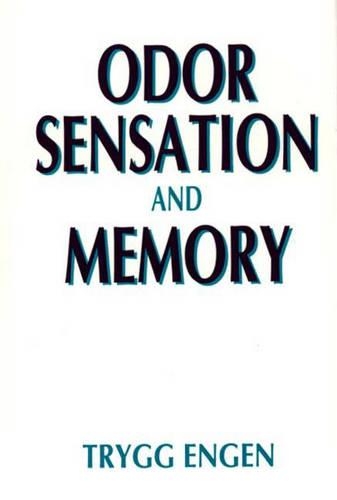
Odor Sensation and Memory
(Hardback)
Publishing Details
Odor Sensation and Memory
By (Author) Trygg Engen
Bloomsbury Publishing PLC
Praeger Publishers Inc
21st November 1991
United States
Classifications
Tertiary Education
Non Fiction
Physiological psychology, neuropsychology, biopsychology
152.166
Physical Properties
Hardback
168
Description
Our sense of smell, as Trygg Engen reminds us early in this definitive work, has been neglected as a research area. This neglect bellies the very critical role that the sense plays in human adaptation to the environment through the monitoring of odors. Smell is "learned" through experience and results, Engen maintains, in a schema of memory system that enables individuals to process and categorize odors. There are closer relationships between the individual detecting an odor, the circumstances or similar odors, memory will bring back the early experience and directly affect the reaction to the new stimuli. Engen sees odor perception as mainly psychological, unlike the traditional approach which sees the sense larely as an innate mechanisms with a direct physiological basis. The research underlying this book is the most current in sensory cognition, reminding the reader of the importance of the sense of smell through examples of what deprivation entails. The author develops an appreciation of the odor-sensing ability mankind has and explores the uses to which that sense is applied. The ability to relate past to present perception - odor memory - and the gradation of odor impact are discussed, as well as the engaging questions of fragrances effects on behaviour, odors and sexuality, mother-infant bonding and pollution.
Reviews
Engen, a psychologist who has studied human odor perception for more than 30 years, demands that when it comes to the cognitive side of human olfaction, we must believe that it is all "nurture" and no "nature," and dismisses the possibility that any odor might have an innate, pheromone-like action in humans. Engen maintains that prior to our initial experience, odors are hedonically neutral, neither pleasant nor unpleasant. The hedonic quality of a particular odor is determined only by the situational context in which the odor was first perceived--an odor becoming forever bound to the pleasantness (or unpleasantness) of that initial experience. The real importance of this work is Engen's view that odors serve as quick and efficient "index keys" for our memory retrieval system. By tightly binding an odor to a particular memory, we can rapidly search our memory, database to determine whether a particular odor was previously associated with a positive situation that would now favor approach behavior or avoidance. The concept is appealing, if not intuitive, since it seems to confer obvious survival value. An important book that should be added to any collection of works on human sensory perception.-Choice
"Engen, a psychologist who has studied human odor perception for more than 30 years, demands that when it comes to the cognitive side of human olfaction, we must believe that it is all "nurture" and no "nature," and dismisses the possibility that any odor might have an innate, pheromone-like action in humans. Engen maintains that prior to our initial experience, odors are hedonically neutral, neither pleasant nor unpleasant. The hedonic quality of a particular odor is determined only by the situational context in which the odor was first perceived--an odor becoming forever bound to the pleasantness (or unpleasantness) of that initial experience. The real importance of this work is Engen's view that odors serve as quick and efficient "index keys" for our memory retrieval system. By tightly binding an odor to a particular memory, we can rapidly search our memory, database to determine whether a particular odor was previously associated with a positive situation that would now favor approach behavior or avoidance. The concept is appealing, if not intuitive, since it seems to confer obvious survival value. An important book that should be added to any collection of works on human sensory perception."-Choice
Author Bio
TRYGG ENGEN is Professor of Psychology at Brown University. He is an eminent authority in sensory perception--most particularly in the area of odor perception. He has received much international recognition, including an honorary doctorate from a Swedish university where he also conducts research and teaches.
